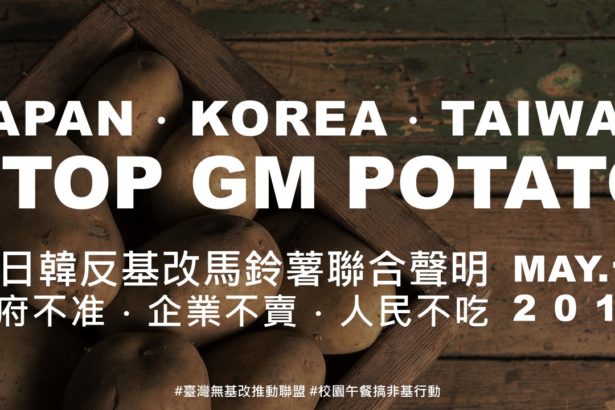In the new process of fishery development in Taiwan, the threshold of fish culture technology needs to be broken so that there are new prospects for fishery culture.
Taiwan has entered an aging society in 105 years. Under the addition and multiplication effect of fewer children, the problem of shortage of agricultural labor force is imminent. Therefore, in 106, the Council of Agriculture actively promoted smart agriculture 4.0, hoping that through the innovation of wireless communications and sensors, farmers can also face the management challenges brought about by climate change with limited manpower. The aquaculture laboratory team recently combined with the Lightspot team to demonstrate the research and development results, including: indoor facility culture system, marine vibrio detection system, and UAV water quality monitoring vehicle to exchange new ideas and technologies with the aquaculture industry.
Zeng Zhende, secretary to the director of the Water Test Institute, said that apart from facing population problems, the traditional aquaculture industry also faces the risk of fish diseases and drug use caused by climate change in most open-air farming environments in the country. therefore, we hope to use the technology of big data, artificial intelligence, and the "big shot" of the Internet of things to help fishermen implement effective and accurate production patterns under limited land and water resources.
Wang Yujun, an assistant researcher in the Planning Information Group of the Water Test Institute, explained the development achievements of the Water Test Institute in the past three years: the Internet of things system for intelligent grouper culture, the marine vibrio detection system, and the UAV water quality monitoring vehicle. Among them, in the Internet of things system for intelligent grouper culture, the Water Test Institute has set up an indoor grouper culture model factory in Qigu, and set up water quality monitoring equipment in the culture pond. The system will start aerating equipment and sunshade net for specific information, and immediately respond to the situation in the pond. At the same time, through the underwater image identification system to record the activity status of the fish and control the feeding frequency of the feeding machine, when it is found that the fish are no longer active because of the dispersion of the bait, that is, to judge that the bait is sufficient and stop supplying, in order to effectively control the cost of bait and reduce water pollution. The relevant data will eventually return to the "aquaculture decision visualization subsystem". Managers can grasp the information about the operation of fishing conditions or equipment in the pond through the monitoring platform, so they do not have to go to the fish pond to make culture decisions with the help of the Internet of things.
However, Zeng Zhende also said frankly that although it is convenient for science and technology to assist decision-making, there is still a long way to go to promote the concept and implement machine decision-making in practice, because older farmers rely on personal experience and have a conservative attitude towards new technology and technology, so the Water Test Institute will try to handle more technology and explain that it will be promoted to young farmers. In addition, machine decision-making involves data collection, interpretation, and writing parameters before the machine can execute them effectively. To judge and read useful data and establish a parameter system is the key to the development of the "big shot" technology. Therefore, the data collected by the water test station in the grouper culture area and the established parameter system will also be open to farmers for reference in the future, so that the data can play a role.

All the data will be integrated into the management interface, and the manager can clearly grasp the facility and biological data in the field at a glance for remote control. (photo / Water Laboratory)

Automatic detection system of marine vibrio. (photo / photo taken by reporter Chen Yan and Yin)
- Prev

[initiative] 2019 Japan-South Korea Joint statement on Anti-GM Potato
[initiative] 2019 Japan-South Korea Joint statement on Anti-GM Potato
- Next

The family convenience merchants purchase 6 tons of red quinoa processing in Pingtung, looking forward to driving the development of tribal green agriculture.
The family convenience store announced on the 16th that in cooperation with the soil and Water Conservation Bureau of the Council of Agriculture, "good things in rural areas" will be put on the e-commerce platform. Among them, the super merchants will purchase nearly 6 tons of red quinoa into rice balls, cold noodles and other processed products from the Dawu tribe and Ma hometown farmers in Wutai Township, Pingtung, hoping to promote the development of tribal industry. 5
Related
- A course of planting techniques and methods on how to grow carrots
- How to plant the latest tulips?
- Is it better to pick tea in the morning or in the afternoon? When is the best time for tea to be picked? what is the third or fifth tea?
- Launch Yuanxiao Happy combination Haocha + Tea Yuan healthy Taste
- Penghu Tourism "Fireworks 20 Parade with You"
- 2022 West Lake Happiness holds "Digital Revitalization Voucher" and draws iphone13 and laptop.
- Banqiao Fuzhou social houses are designed to change start-up combined with police elimination to create a safe and livable environment
- The convenient measure of "mechanical weeding" in Xinbei has been abused and the Agriculture Bureau has imposed heavy penalties on the illegal land consolidation.
- Changgeng University Joins Hands with Four Memory Factories to Rescue Memory Talent Shortage
- The list of Taiwan's top 100 MVP managers is listed by the Director-General of the Farmers' Association of Sanxia District.

